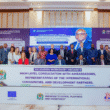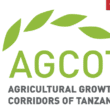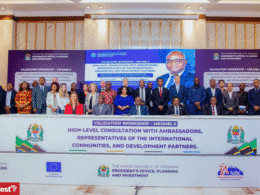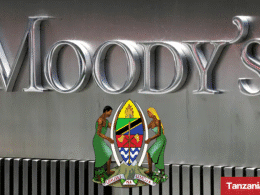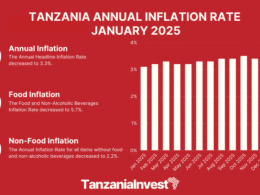The Tanzanian Government has a favorable attitude towards foreign direct investment (FDI) and has made significant efforts to encourage foreign investment. Generally, foreign investors receive the same treatment as local investors.
The Tanzania Investment Centre (TIC) is the focal point for all investors’ inquiries and facilitates project start ups. It further provides for joint venture opportunities between local and foreign investors and disseminates investment information.
Companies holding TIC certificates of incentives are allowed Value Added Tax (VAT) and import duty exemptions, repatriation of dividends and profits among other things. Similar incentives are offered to investors in Zanzibar through the Zanzibar Investment Promotion Agency (ZIPA).
Investment and trade opportunities promoted by the TIC include agriculture, mining, tourism, telecommunications, financial services, energy, transportation and infrastructure development.
The TIC grants a number of incentives to investors including tax incentives, limited import duties, relaxed immigration requirements and guarantees against nationalisation and expropriation.
Land ownership remains restrictive in Tanzania. All land in Tanzania is owned by the state and vested to the President of theUnited Republic of Tanzania as Trustee of the Land for Tanzanians.
Statutory leases of up to 99 years may be obtained. Investments on the Dar es Salaam Stock Exchange (the DSE) are open to foreign investors, but injection of foreign capital is capped at 60% of the listed shares.
However, in the case of a public issue and with prior written approval of the Capital Markets and Securities Authority, an issuer may allot securities in excess of the prescribed limit to residents of the East African Community and foreign investors, in that order, if Tanzanians do not take up the securities.
Forms of Business
Principal forms of business organization are sole proprietor, partnership, incorporated company and registered branch of overseas companies.
Formation of Companies
Limited liability companies and branches must be registered with the Business Registration and Licensing Agency (BRELA).
Partnerships and sole traders, if trading in names other than their own, have to be registered with BRELA. A foreign investor can set up a place of business in Tanzania by
either setting up a branch or by incorporating a company. A company can be incorporated as an independent entity or a subsidiary of the parent company which is incorporated in a foreign jurisdiction.
Business licenses must be obtained for all forms of business. Specified businesses like banks, insurance companies,contractors, tour operators, hotels and professionals must have specific licences in addition to the business licences.
The Bank of Tanzania administers, controls and manages all dealings and transactions in relation to gold and foreign exchange matters.
Taxation
The Income Tax Act became operational on 1 July 2004. The Income Tax Act regulates the charge, assessment and collection of revenues. Other tax statutes include the Value Added Tax Act, Revised Edition 2006, the East African Community Customs Management Act 2004 and the Stamp Duties Act, Revised Edition 2006.
Import/Export
Traditional exports account for 16% of all merchandise exports while gold accounts for 34% and other exports for 50%. Tanzania’s traditional export crops notably cotton, cloves, coffee and cashew nuts and non-traditional exports excluding gold are facing unprecedented decline in demand and price due to the global economic slowdown.
Growth has been recorded in all categories of merchandise imports except for food. Import of intermediate goods continued to dominate merchandise imports. Oil imports increased substantially between 2008 and 2010.
Legal System
The highest court in Tanzania is the Court of Appeal, which has appellate jurisdiction over the whole of the Republic of Tanzania. To deal with the more complex issues arising in a liberalised economy (such as international business, finance, intellectual property and land matters), separate divisions of the High Court have been established for commercial and land matters.
Intellectual Property
The Copyright and Neighbouring Rights Act, Revised Edition 2002, provides for the protection of copyright and neighbouring rights in literary, artistic works, folklore and other related matters.
The Trade and Service Marks Act No. 12 of 1986 provides for the registration and protection of Trade and Service Marks and for connected matters. The Patent Act, Revised Edition 2002, provides for the promotion of inventions and innovation for the facilitation of the acquisition of technology on fair terms through the grant and
regulation of patents, utility certificates and innovation certificates.
Treaties and Bilateral Agreements
Tanzania has entered into bilateral treaties for the promotion and protection of foreign direct investment (FDI) with Denmark, Finland, Germany, India, Italy, Netherlands, Norway, Sweden, Switzerland, United Kingdom and Zambia.
Tanzania is a member of several international organizations including The International Centre for the Settlement of Investment Disputes (ICSID) and the Multilateral Investment Guarantee Agency (MIGA). Tanzania is also a signatory to the New York Convention on the recognition and enforcement of Arbitration Awards.
Membership of International and Regional Organisations Tanzania is a member of the United Nations Organisation, the African Union, the East African Community and the Southern African Development Community.
About the Author:
http://tanzaniainvest.com/law/attorneys/661-rex-attorneys
http://www.rexattorneys.co.tz/



